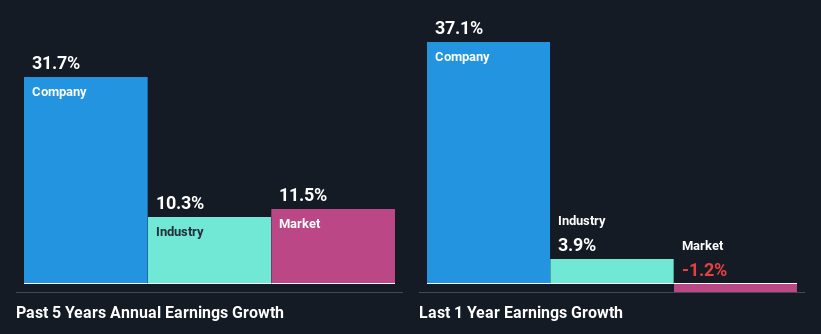Redde Northgate plc's (LON:REDD) Stock Is Going Strong: Is the Market Following Fundamentals?
Redde Northgate (LON:REDD) has had a great run on the share market with its stock up by a significant 15% over the last three months. Given the company's impressive performance, we decided to study its financial indicators more closely as a company's financial health over the long-term usually dictates market outcomes. Particularly, we will be paying attention to Redde Northgate's ROE today.
Return on Equity or ROE is a test of how effectively a company is growing its value and managing investors’ money. In short, ROE shows the profit each dollar generates with respect to its shareholder investments.
Check out our latest analysis for Redde Northgate
How Is ROE Calculated?
ROE can be calculated by using the formula:
Return on Equity = Net Profit (from continuing operations) ÷ Shareholders' Equity
So, based on the above formula, the ROE for Redde Northgate is:
14% = UK£139m ÷ UK£995m (Based on the trailing twelve months to April 2023).
The 'return' is the yearly profit. One way to conceptualize this is that for each £1 of shareholders' capital it has, the company made £0.14 in profit.
What Has ROE Got To Do With Earnings Growth?
So far, we've learned that ROE is a measure of a company's profitability. Based on how much of its profits the company chooses to reinvest or "retain", we are then able to evaluate a company's future ability to generate profits. Generally speaking, other things being equal, firms with a high return on equity and profit retention, have a higher growth rate than firms that don’t share these attributes.
A Side By Side comparison of Redde Northgate's Earnings Growth And 14% ROE
To start with, Redde Northgate's ROE looks acceptable. Even when compared to the industry average of 12% the company's ROE looks quite decent. Consequently, this likely laid the ground for the impressive net income growth of 32% seen over the past five years by Redde Northgate. We reckon that there could also be other factors at play here. For example, it is possible that the company's management has made some good strategic decisions, or that the company has a low payout ratio.
As a next step, we compared Redde Northgate's net income growth with the industry, and pleasingly, we found that the growth seen by the company is higher than the average industry growth of 10%.
Earnings growth is a huge factor in stock valuation. What investors need to determine next is if the expected earnings growth, or the lack of it, is already built into the share price. By doing so, they will have an idea if the stock is headed into clear blue waters or if swampy waters await. Is REDD fairly valued? This infographic on the company's intrinsic value has everything you need to know.
Is Redde Northgate Efficiently Re-investing Its Profits?
The three-year median payout ratio for Redde Northgate is 50%, which is moderately low. The company is retaining the remaining 50%. This suggests that its dividend is well covered, and given the high growth we discussed above, it looks like Redde Northgate is reinvesting its earnings efficiently.
Additionally, Redde Northgate has paid dividends over a period of at least ten years which means that the company is pretty serious about sharing its profits with shareholders. Upon studying the latest analysts' consensus data, we found that the company is expected to keep paying out approximately 54% of its profits over the next three years. Still, forecasts suggest that Redde Northgate's future ROE will drop to 8.3% even though the the company's payout ratio is not expected to change by much.
Conclusion
In total, we are pretty happy with Redde Northgate's performance. Specifically, we like that the company is reinvesting a huge chunk of its profits at a high rate of return. This of course has caused the company to see substantial growth in its earnings. Having said that, on studying current analyst estimates, we were concerned to see that while the company has grown its earnings in the past, analysts expect its earnings to shrink in the future. Are these analysts expectations based on the broad expectations for the industry, or on the company's fundamentals? Click here to be taken to our analyst's forecasts page for the company.
Have feedback on this article? Concerned about the content? Get in touch with us directly. Alternatively, email editorial-team (at) simplywallst.com.
This article by Simply Wall St is general in nature. We provide commentary based on historical data and analyst forecasts only using an unbiased methodology and our articles are not intended to be financial advice. It does not constitute a recommendation to buy or sell any stock, and does not take account of your objectives, or your financial situation. We aim to bring you long-term focused analysis driven by fundamental data. Note that our analysis may not factor in the latest price-sensitive company announcements or qualitative material. Simply Wall St has no position in any stocks mentioned.

